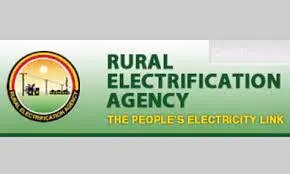The Rural Electrification Agency (REA) has made significant strides, bringing electricity to 7.5 million Nigerians since 2020. Through strategic partnerships and reform programs, REA aims to enhance energy security, create jobs, and boost small businesses in the country.
The acting Director, of the Department of Promotion, Information and Outreach of the agency, Muntari Ibrahim, who disclosed this in a statement he issued over the weekend in Abuja, said REA’s projects are supported by the World Bank and other partners, including supplying electricity to 1.5 million households, implementing 130 mini-grid projects, deploying 1.3 million standalone home systems, and installing over 1,650km of solar streetlights. These initiatives aim to improve power, security, and economic growth in rural areas.
The agency said he has completed 1,403 projects, covering solar streetlights, mini-grids, standalone home systems, and grid extensions. These efforts have resulted in the delivery of 65 MW of power across six geo-political zones through various programs.
Over the past decade, REA has achieved remarkable milestones, including electrifying numerous communities, creating 500,000 jobs, and attracting over $2 billion in investments in the renewable energy sector. The agency’s collaborations with international organizations and development partners have played a crucial role in these accomplishments.
In 2022, as part of the National Poverty Reduction and Growth Strategy (NPRGS), REA secured an additional $4 billion in capital injection grants. This funding will provide clean-power standalone home systems to over 50,000 locations, benefiting rural homes, micro-businesses, schools, and faith-based institutions.
Responding to fuel subsidy removal, REA said they are actively working on interventions to promote electric mobility, expand mini-grids, distribute home systems, and deploy streetlights to support around 250,000 households in the upcoming year.
To ensure transparency and efficiency, REA has initiated reform programs in collaboration with the Federal Ministry of Power and the Office of the Head of Civil Service of the Federation. These programs address manpower shortages, enhance staff welfare, and ultimately aim for improved service delivery.
The agency said it remains committed to its mission of transforming lives in rural areas through electrification projects. It calls for public support in achieving uninterrupted power supply to underserved areas, aligning with President Bola Tinubu’s “Renewed Hope Agenda.”










